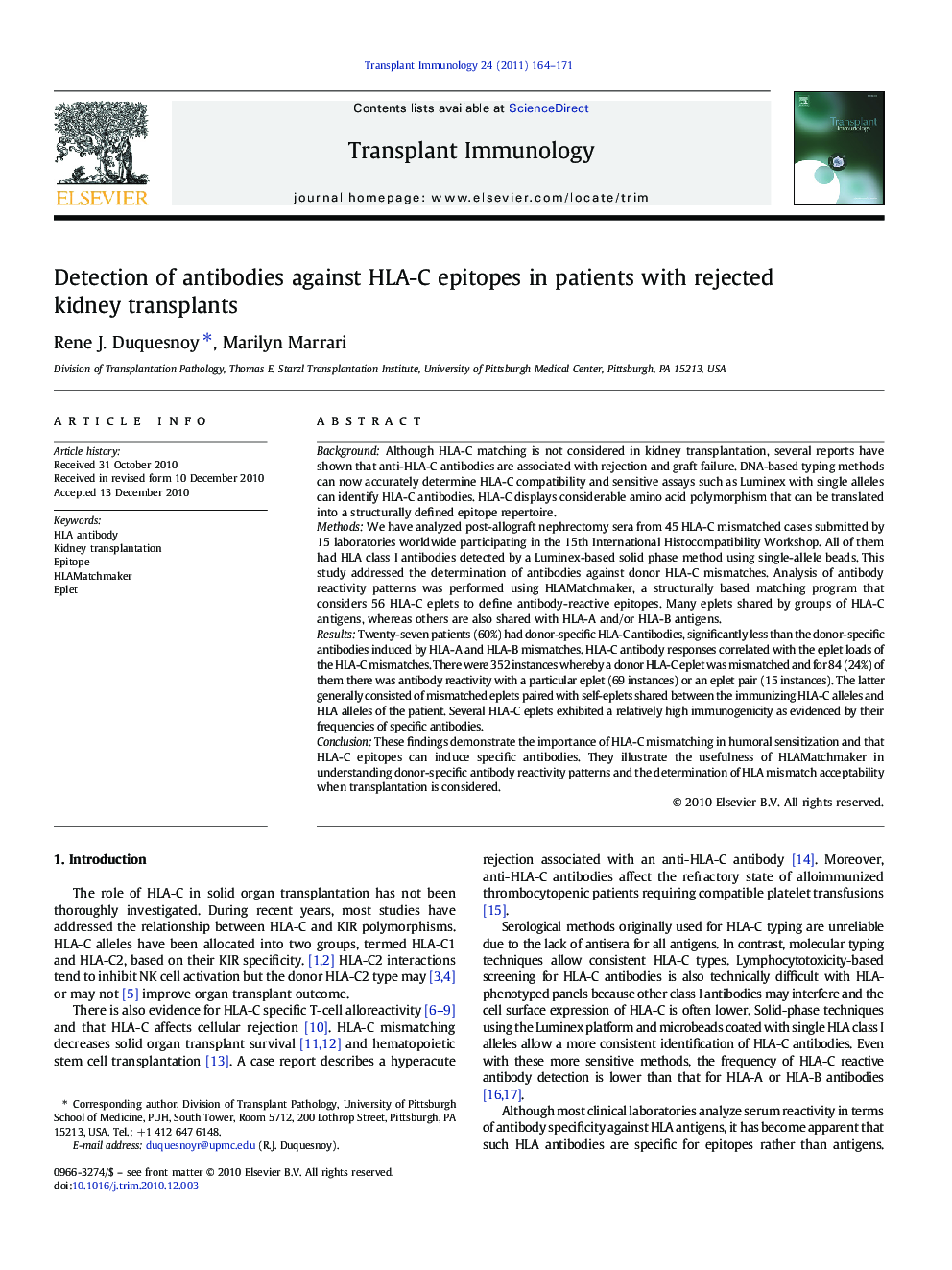| Article ID | Journal | Published Year | Pages | File Type |
|---|---|---|---|---|
| 3392203 | Transplant Immunology | 2011 | 8 Pages |
BackgroundAlthough HLA-C matching is not considered in kidney transplantation, several reports have shown that anti-HLA-C antibodies are associated with rejection and graft failure. DNA-based typing methods can now accurately determine HLA-C compatibility and sensitive assays such as Luminex with single alleles can identify HLA-C antibodies. HLA-C displays considerable amino acid polymorphism that can be translated into a structurally defined epitope repertoire.MethodsWe have analyzed post-allograft nephrectomy sera from 45 HLA-C mismatched cases submitted by 15 laboratories worldwide participating in the 15th International Histocompatibility Workshop. All of them had HLA class I antibodies detected by a Luminex-based solid phase method using single-allele beads. This study addressed the determination of antibodies against donor HLA-C mismatches. Analysis of antibody reactivity patterns was performed using HLAMatchmaker, a structurally based matching program that considers 56 HLA-C eplets to define antibody-reactive epitopes. Many eplets shared by groups of HLA-C antigens, whereas others are also shared with HLA-A and/or HLA-B antigens.ResultsTwenty-seven patients (60%) had donor-specific HLA-C antibodies, significantly less than the donor-specific antibodies induced by HLA-A and HLA-B mismatches. HLA-C antibody responses correlated with the eplet loads of the HLA-C mismatches. There were 352 instances whereby a donor HLA-C eplet was mismatched and for 84 (24%) of them there was antibody reactivity with a particular eplet (69 instances) or an eplet pair (15 instances). The latter generally consisted of mismatched eplets paired with self-eplets shared between the immunizing HLA-C alleles and HLA alleles of the patient. Several HLA-C eplets exhibited a relatively high immunogenicity as evidenced by their frequencies of specific antibodies.ConclusionThese findings demonstrate the importance of HLA-C mismatching in humoral sensitization and that HLA-C epitopes can induce specific antibodies. They illustrate the usefulness of HLAMatchmaker in understanding donor-specific antibody reactivity patterns and the determination of HLA mismatch acceptability when transplantation is considered.
